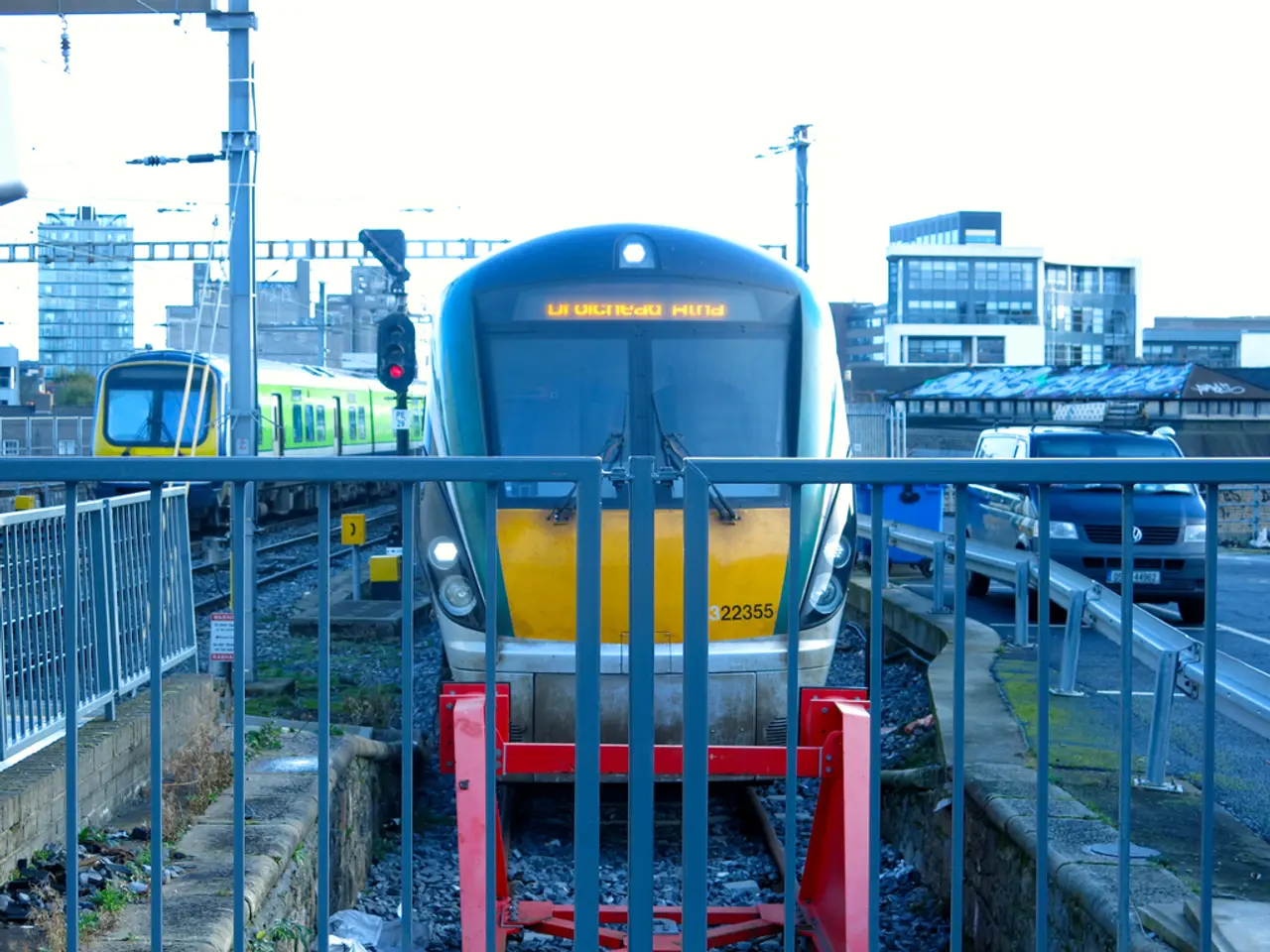Anticipated substantial price hikes in the railway sector
Deutsche Bahn (DB), Germany's national railway company, has announced plans to increase rail passenger prices by more than 10% this year and reduce ICE routes by about a quarter. The changes are primarily due to rising operational costs and strategic adjustments amid economic challenges.
Key factors driving this decision include the abolition of family reservations and an increase in seat reservation costs. From June 15, 2025, DB will no longer offer the family reservation option, which previously allowed families to reserve up to five seats for a fixed low price. Instead, each passenger, including children, must pay separately for seat reservations, leading to a potential doubling or more of the cost for families. Prices for second-class reservations have increased to €5.50 (from €5.20), and first-class reservations have risen to €6.90 (from €6.50).
The pricing policy change has garnered criticism from travelers, associations, and even some government figures, who view it as sending a poor signal regarding DB’s priorities. However, the Federal Ministry of Transport has stated that this is a corporate decision within DB’s operational scope.
Another factor contributing to the cost increases is the economic pressure facing the German economy, influenced by international factors and US policies. This, in turn, affects transport companies’ costs, such as infrastructure renovations and rising labor wages.
To optimize fleet utilization and control costs amidst fluctuating demand, DB plans to cut about 25% of ICE routes. While long-distance travel kilometres have increased, DB is managing service offerings to ensure economic viability.
Despite the price increases and route cuts, DB is simultaneously offering targeted discounts and promotions to stimulate passenger numbers among specific groups like youth, retirees, and commuters. This suggests a balancing act between revenue needs and attracting customers.
In addition, Deutsche Bahn's infrastructure division is increasing fees by 18% for long-distance traffic and by 16% for freight traffic. The EVG chairman, Martin Burkert, has called on the Bundestag to mitigate the railway track charges.
The reduction in long-distance connections on the most frequently traveled ICE routes will amount to a quarter, making train travel more expensive and potentially less accessible for some passengers. The inflation in train traffic is a current issue in mobility concepts discussions, as affordability becomes a growing concern for many Germans.
[1] Deutsche Bahn, "Family reservation: Discontinuation of the family reservation option," accessed March 20, 2023, https://www.bahn.com/en/view/information/topics/family-reservation
[2] Deutsche Bahn, "Seat reservation: Prices and conditions," accessed March 20, 2023, https://www.bahn.com/en/view/information/topics/seat-reservation
[3] Deutsche Bahn, "Adjustments to the long-distance network," accessed March 20, 2023, https://www.bahn.com/en/view/information/topics/adjustments-to-the-long-distance-network
[4] Federal Ministry of Transport and Digital Infrastructure, "Deutsche Bahn's decision to abolish family reservations," accessed March 20, 2023, https://bmvi.de/SharedDocs/Pressemitteilungen/DE/2023/02/pressemitteilung-2023-02-22-familien-reservierung-bei-deutsche-bahn-abgeschafft.html
[5] Deutsche Bahn, "Special offers and discounts," accessed March 20, 2023, https://www.bahn.com/en/view/information/topics/special-offers-and-discounts
- The community policy changes at Deutsche Bahn, such as abolishing family reservations and increasing seat reservation costs, are linked to the rising operational costs and economic challenges in the industry, particularly in the finance and transportation sectors.
- In response to these economic pressures and in an attempt to control costs, Deutsche Bahn is offering vocational training programs for its employees to improve their skills and efficiency, while also exploring new business opportunities and partnerships to generate additional revenue.





